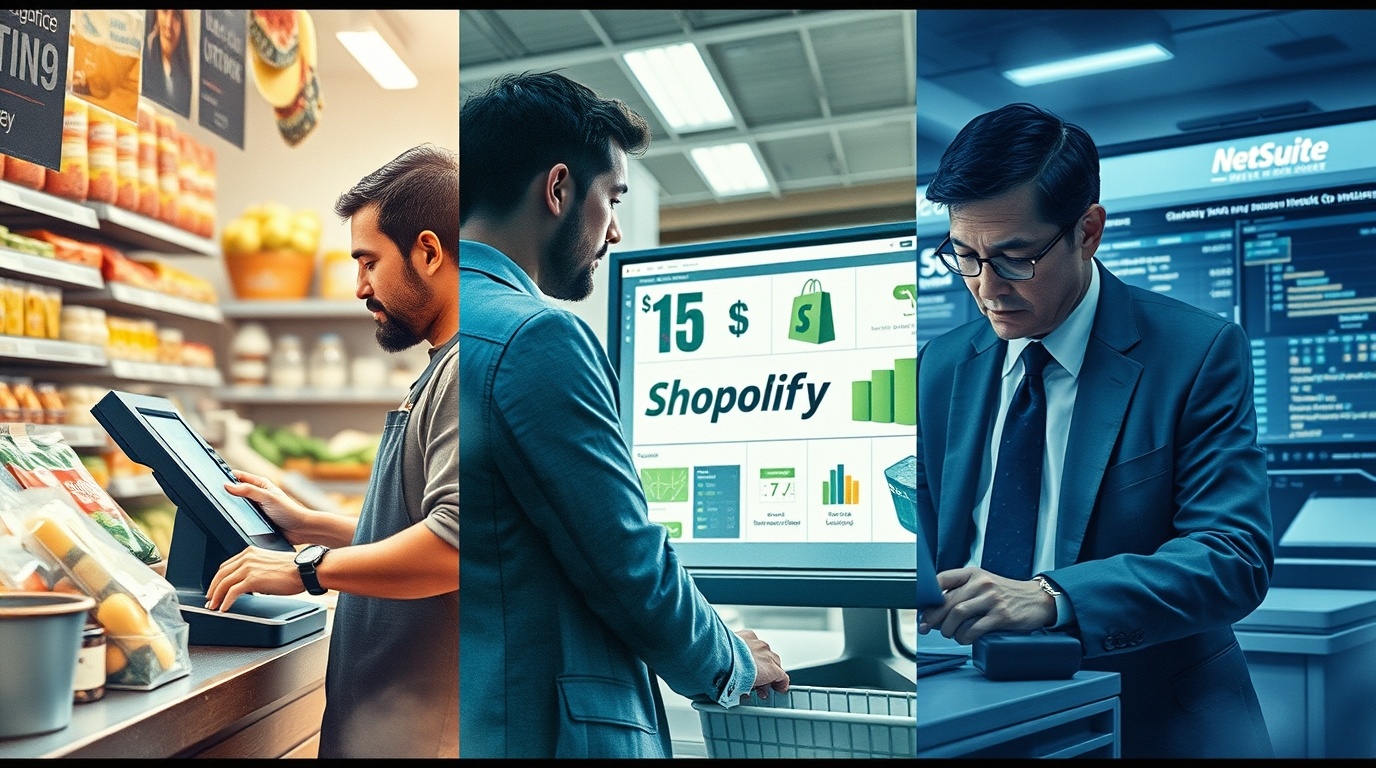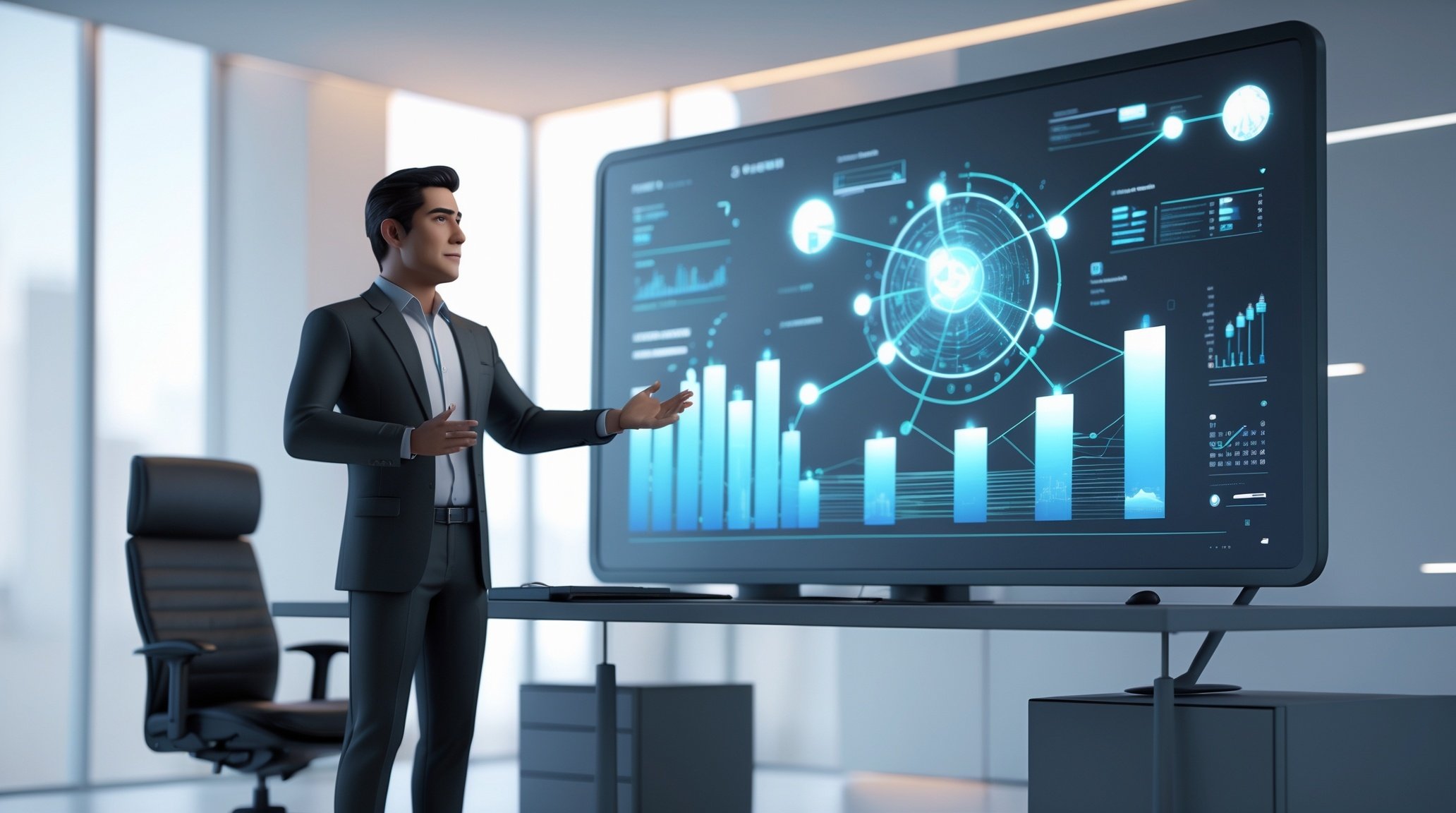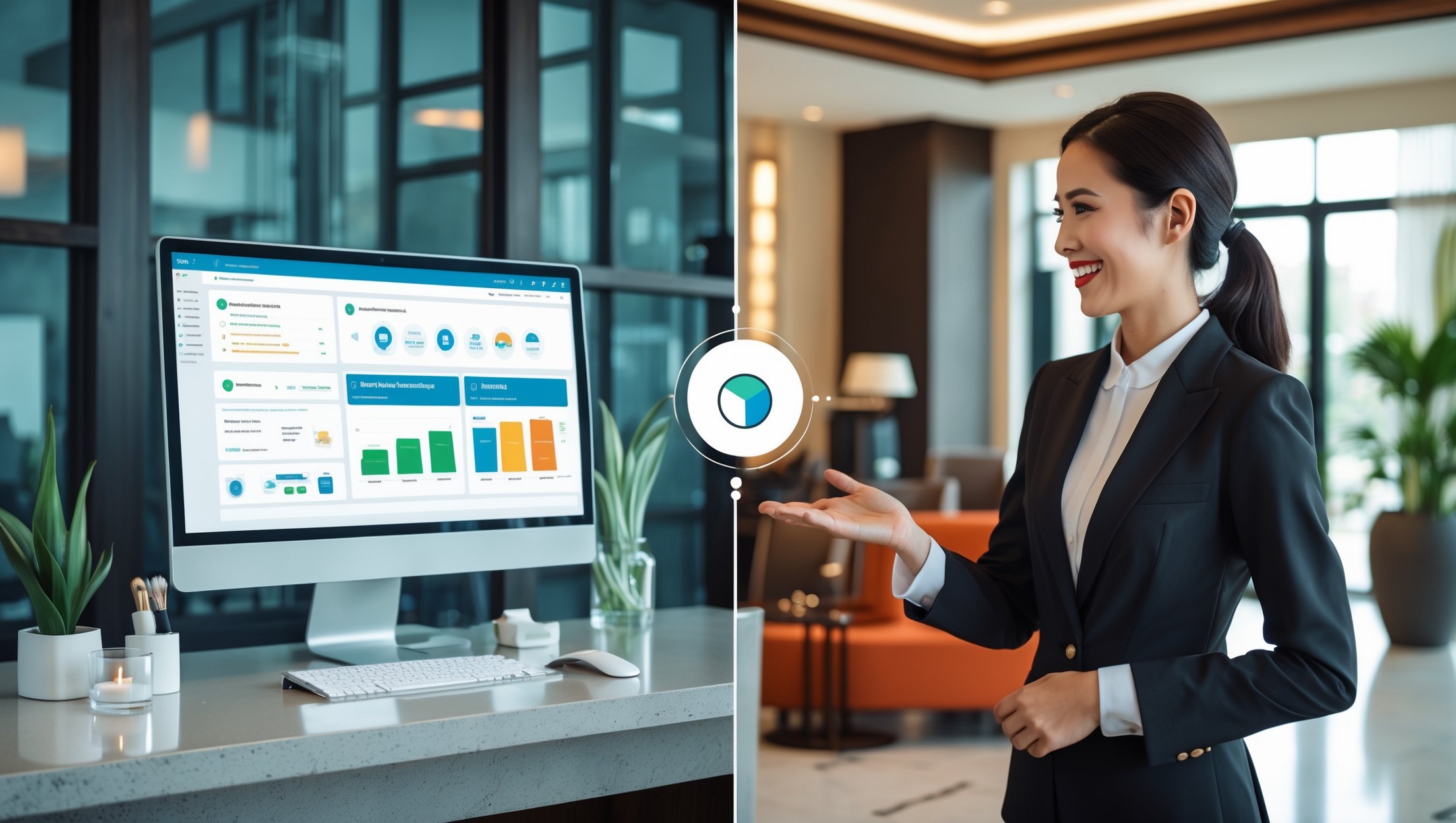Why integrate Point of Sale, E-Commerce, and ERP?
By Luis Bocanegra on Apr 21, 2025 12:46:34 PM

Although more stores are adopting fixed and mobile POS systems to streamline their sales and payment processes, with an annual growth of 162%, the real competitive advantage lies in integrating these systems with an ERP and E-Commerce platforms to manage inventory, automate processes, and optimize operations.
Below, we explain the differences between each type of system, the benefits of integrating them into your business, and some tool recommendations that can help sustain your store’s growth.
Understanding the differences between POS, E-Commerce, and ERP
In the world of enterprise software, it’s common to confuse certain technologies as they share some functions. However, each has a specific purpose. Below, we explain the key differences between Point of Sale (POS) systems, E-Commerce platforms, and ERPs.
Point of Sale (POS): Beyond the cash register
POS systems have evolved from simple cash registers to comprehensive solutions that process payments and enhance customer experience. Initially, they only recorded cash transactions, but today they can include bank terminals, loyalty programs, and synchronization with other management systems.
There are different types of POS systems:
-
Basic POS, focused solely on payments.
-
POS with inventory management, enabling better stock control.
-
Advanced POS, offering features like self-ordering by customers.
Modern POS systems are compatible with multiple platforms and can easily integrate with other business systems.
E-Commerce: Your online store without borders
E-Commerce platforms enable the creation and management of online stores, handling orders, customers, and promotions from the cloud. They serve as an additional sales channel, ideal for companies with the logistical capacity to operate globally.
There are three main types of E-Commerce platforms:
-
Global marketplaces, like Amazon, where you sell within their ecosystem.
-
SaaS platforms, like Shopify, which offer ready-to-use infrastructure.
-
Custom builds, developed using tools like HubSpot, Zoho, or WordPress, integrating with broader sales systems.
ERP: The central core of your business operation
Enterprise Resource Planning (ERP) systems centralize the management of all key areas of a business, including POS sales, e-Commerce, purchases, inventory, and finances. Their goal is to consolidate information in one place to improve decision-making, reduce operational costs, and increase productivity.
Today, ERPs function as the brain of a business, integrating other tools either natively or through external system connections. This provides a complete view of the company, facilitating the identification of improvement opportunities.
There are two main types of ERPs:
-
On-premise ERP: Hosted on a local or leased server, providing more control over the data but with greater vulnerability to cyberattacks.
-
Cloud-based ERP: Operates through distributed servers, enhancing security, ensuring access even in emergencies, and offering greater operational flexibility.
In the retail sector, Oracle NetSuite is one of the leading choices due to its native integration with multiple E-Commerce platforms and business management systems.
Efficientix POS
Benefits of integrating POS, E-Commerce, and ERP
In today’s digital world, integrating an E-Commerce system with an ERP and POS is a key strategy for optimizing business management. With the growing digitalization of commercial processes, having an integrated technological infrastructure is not just a competitive advantage, but a necessity to ensure sustainable growth and operational efficiency.
Here are the benefits your business will gain by integrating these three systems into a unified core:
-
Automation of Processes and Error Reduction
Integration ensures that information flows automatically between systems. For example, when a customer makes an online purchase, the order is automatically recorded in the ERP, the inventory is updated in real time, and the corresponding billing is generated. -
Centralized Inventory Management
By integrating E-Commerce with ERP and POS, you gain a unified, real-time view of your inventory. This means that no matter where a sale is made, the system will automatically update the stock levels. This avoids inconsistencies and allows for more precise replenishment strategies, optimizing supply chain management. -
Optimization of the Customer Experience
Today’s customer expects a smooth and personalized shopping experience. With system integration, customer information, purchase history, and preferences are unified, making it easier to implement loyalty programs and options like "click and collect." -
Better Financial and Accounting Control
Financial management is a fundamental pillar for any business. Without proper integration, consolidating sales information from multiple channels can be tedious and error-prone.With an integrated ERP, POS, and E-Commerce system, all financial data is automatically updated, making it easier to generate accurate reports on sales, revenue, and costs. This not only improves decision-making but also ensures compliance with accounting and tax regulations.
-
Scalability and Business Growth
One of the major benefits of integrating these systems is the ability to scale your business without friction. With automated processes and centralized management, businesses can expand into new markets without being limited by manual data management.
Next step: full integration for your store
Integrating ERP, POS, and E-Commerce is not just a technological improvement; it’s a key strategy for growth, operational optimization, and staying ahead in retail. With unified management, you will improve the customer experience, simplify your team’s workload, and gain greater control over sales, inventory, and logistics.
At Efficientix, we make this process easier. We implement comprehensive solutions with:
-
Oracle NetSuite, the ERP chosen by more than 40,000 businesses worldwide.
-
Shopify, the E-Commerce platform used by brands like Red Bull, Heinz, and Decathlon.
-
ZOKU POS, which ensures operational continuity even without internet access.
Make your store reach its full potential!
Contact us and discover how we can help you grow without complications.
You May Also Like
These Related Stories

We’ve realigned our strategy to keep growing: Efficientix is back!

Uncertainty in the Digital Age: How Lack of Information Impacts Your Business


